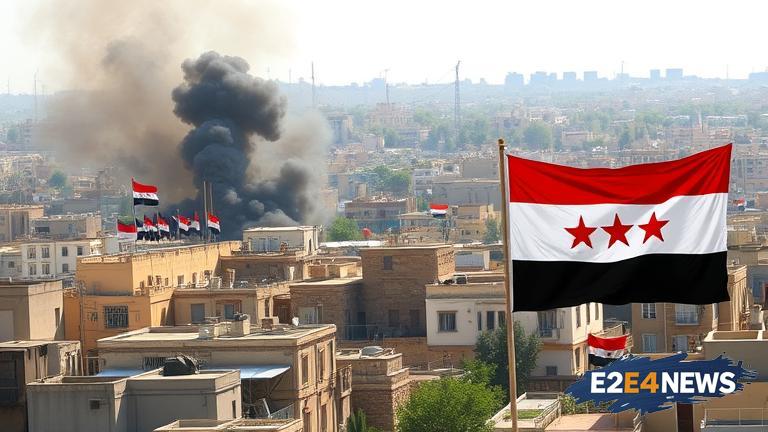The Syrian government has strongly condemned the recent Israeli incursions in Damascus, describing them as a blatant violation of the country’s sovereignty and territorial integrity. The attacks, which occurred in the early hours of the morning, targeted several military positions and infrastructure in the Damascus countryside. According to Syrian state media, the Israeli airstrikes caused significant damage and resulted in the loss of life, with several soldiers and civilians reported killed or injured. The Syrian government has vowed to take all necessary measures to defend its territory and people against Israeli aggression. The incident has sparked widespread condemnation from across the region, with many countries and organizations expressing their solidarity with Syria. The Arab League has issued a statement denouncing the Israeli attacks, describing them as a dangerous escalation that threatens regional stability. The United Nations has also called for restraint and calm, urging all parties to avoid any actions that could further exacerbate the situation. The Israeli government has not commented on the attacks, but it is believed that they were carried out in response to alleged Iranian military activity in the region. Iran has denied any involvement in the attacks, and has instead accused Israel of attempting to provoke a regional war. The situation in the Middle East remains highly volatile, with tensions between Israel and its neighbors continuing to escalate. The conflict in Syria has been ongoing for over a decade, with multiple countries and factions involved. The international community has been working to find a peaceful resolution to the conflict, but so far, a lasting solution has proven elusive. The Syrian government has accused Israel of attempting to exploit the situation in the region to further its own expansionist plans. The Israeli government has long been accused of seeking to expand its territory and influence in the region, and its actions in Syria are seen as part of this broader strategy. The incident has also sparked concerns about the potential for a wider regional war, with many countries in the region having alliances and interests that could be drawn into the conflict. The United States, which has a significant military presence in the region, has urged calm and restraint, but has also reaffirmed its commitment to the security and defense of its allies. The European Union has also called for a peaceful resolution to the conflict, and has urged all parties to avoid any actions that could further escalate the situation. The Russian government, which has a significant military presence in Syria, has accused Israel of recklessly endangering regional stability. The Turkish government, which has a complex relationship with both Israel and Syria, has called for calm and restraint, but has also warned against any attempts to exploit the situation for political gain. As the situation continues to unfold, it remains to be seen how the international community will respond to the crisis. The Syrian government has vowed to continue to defend its territory and people, and has called on the international community to take action to prevent further Israeli aggression. The incident has also highlighted the need for a lasting and comprehensive solution to the conflict in Syria, and the importance of addressing the underlying issues and grievances that have driven the conflict. The international community must work together to find a peaceful resolution to the conflict, and to prevent further escalation and instability in the region. The situation in the Middle East remains highly complex and volatile, and it will require careful diplomacy and cooperation to resolve the crisis and prevent a wider regional war.
